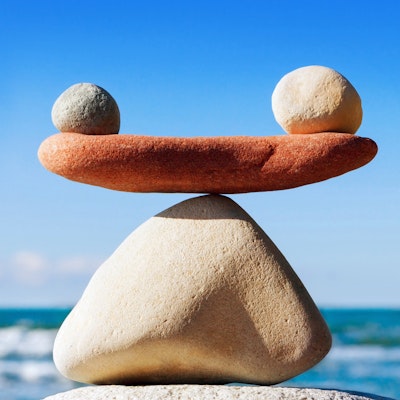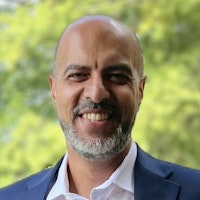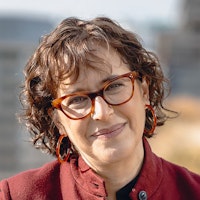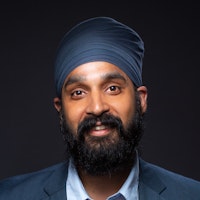
The desire to be connected to worship, to feel purpose and feel a calling is as fundamental throughout humanity as a desire for friendship, for love, for food, and for shelter.
Show Notes
The United States is a more secular society than many, and the percentage of people who don’t identify with organized religion is rising. Some of the impacts from that shift might be obvious, such as declining membership in congregations or decreased support for religious organizations and institutions. But some of the consequences are less obvious. How do we change as people when we don’t practice religious ritual? When we aren’t part of a community? Three scholars and leaders from different religious traditions come together on stage at the Aspen Ideas Festival to grapple with these questions. They point out how ancient faiths permeate our modern lives even where we don’t notice, and speak about the spiritual gaps religion fills for people and society. Kate Bowler is a podcast host and history professor at Duke Divinity School. Haroon Moghul is an imam and director of The Concordia Forum, a network of Muslim leaders. And Shira Stutman is interim rabbi at the Aspen Jewish Congregation, and the founder of Sixth & I Synagogue in Washington, DC. The executive director of the Religion and Society Program at the Aspen Institute, Simran Jeet Singh, moderates the conversation.
Explore
Related episodes


About two decades ago, NPR host Mary Louise Kelly had her first child and went down the extremely common yet commonly daunting life path of balancing a demanding career with a family. As a national security correspondent on assignment war zones, she missed family events and emergency phone calls from her kids’ school. As the daily weekday co-host of “All Things Considered,...


Actor Rainn Wilson had his dream job on the hit TV show “The Office,” but was still being kept up at night by anxiety, depression, and life’s big unanswerable questions. He went on a quest to discover the world’s spiritual teachings, reading all the holy books of the world’s major religions. For several years, he researched and pondered concepts like truth, love, free will...


Why is it that simple pleasures such as bubbles, rainbows, and hot air balloons bring joy to most people? Designer Ingrid Fetell Lee says, “there’s something really powerful in the idea that we all find joy in the same things,” especially items with little significance otherwise. Fetell Lee studied how our physical environment impacts our well-being, both physically and ps...


People have been thinking about happiness for thousands of years. In fact, ancient thinkers came up with strategies for cultivating pleasures over a lifetime, or creating a lasting capacity to take joy in the world. This long-term flourishing is different from immediate pleasures — it’s a richer notion of happiness. Laurie Santos is a professor of psychology at Yale and an...


Most of us know where to find quick hits of pleasure and enjoyment. But what about satisfaction that lasts for years, or decades, or a lifetime? It can be tempting to think the secret lies in pursuing more—more money, more accomplishments, more friends, more stuff—but we have overwhelming evidence that more doesn’t work. Maybe the secret is…wanting less? Arthur Brooks teac...










